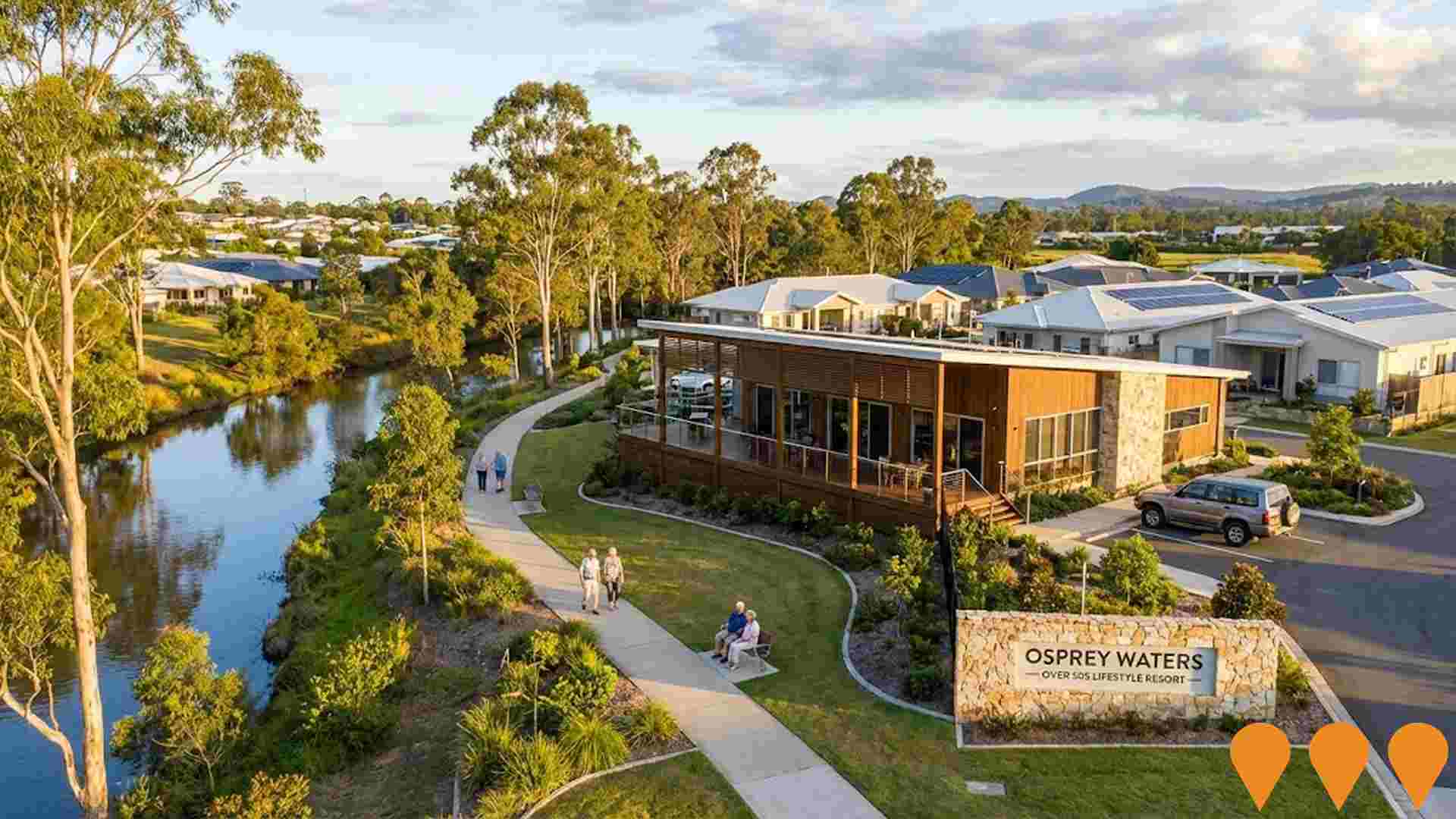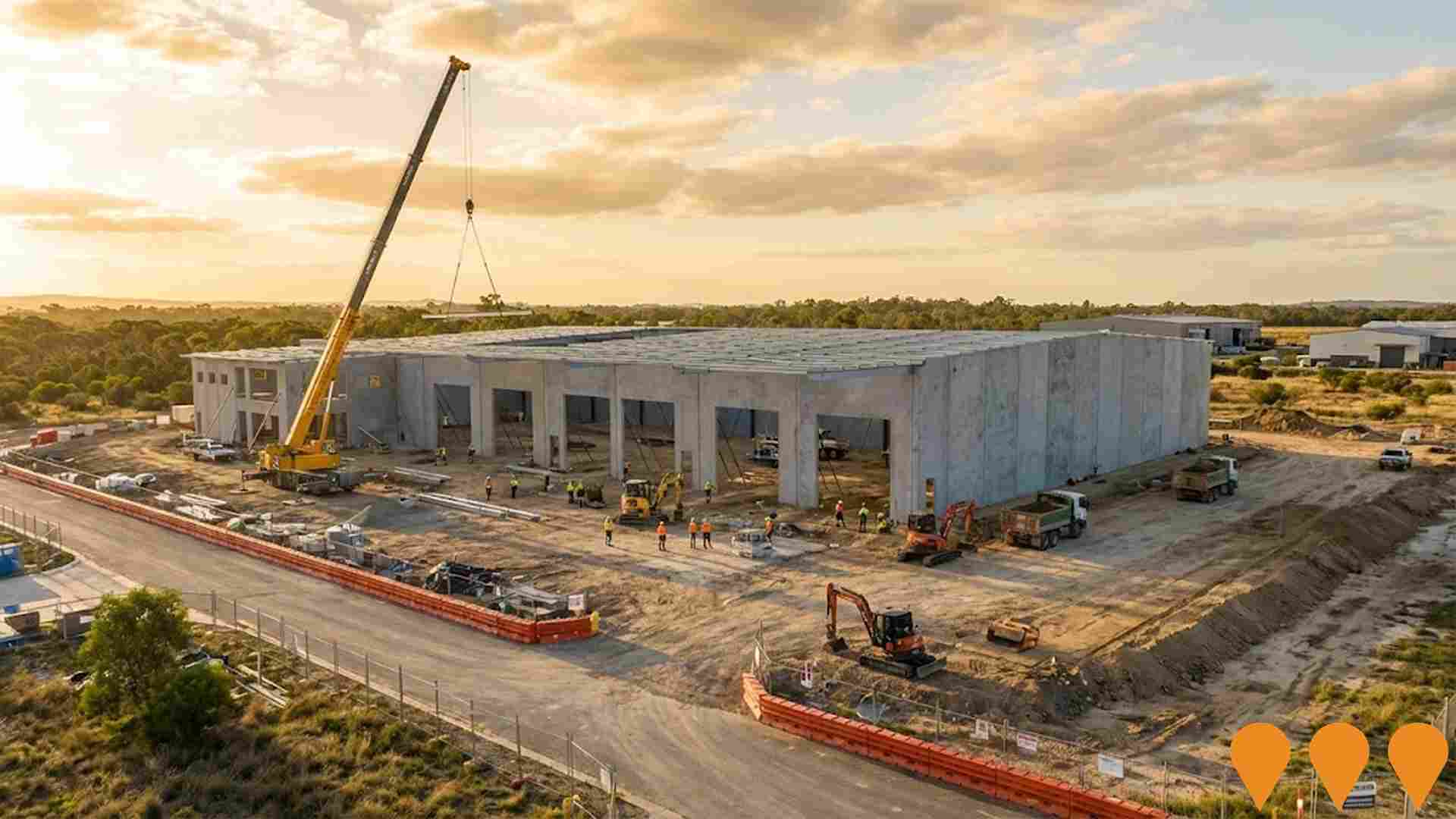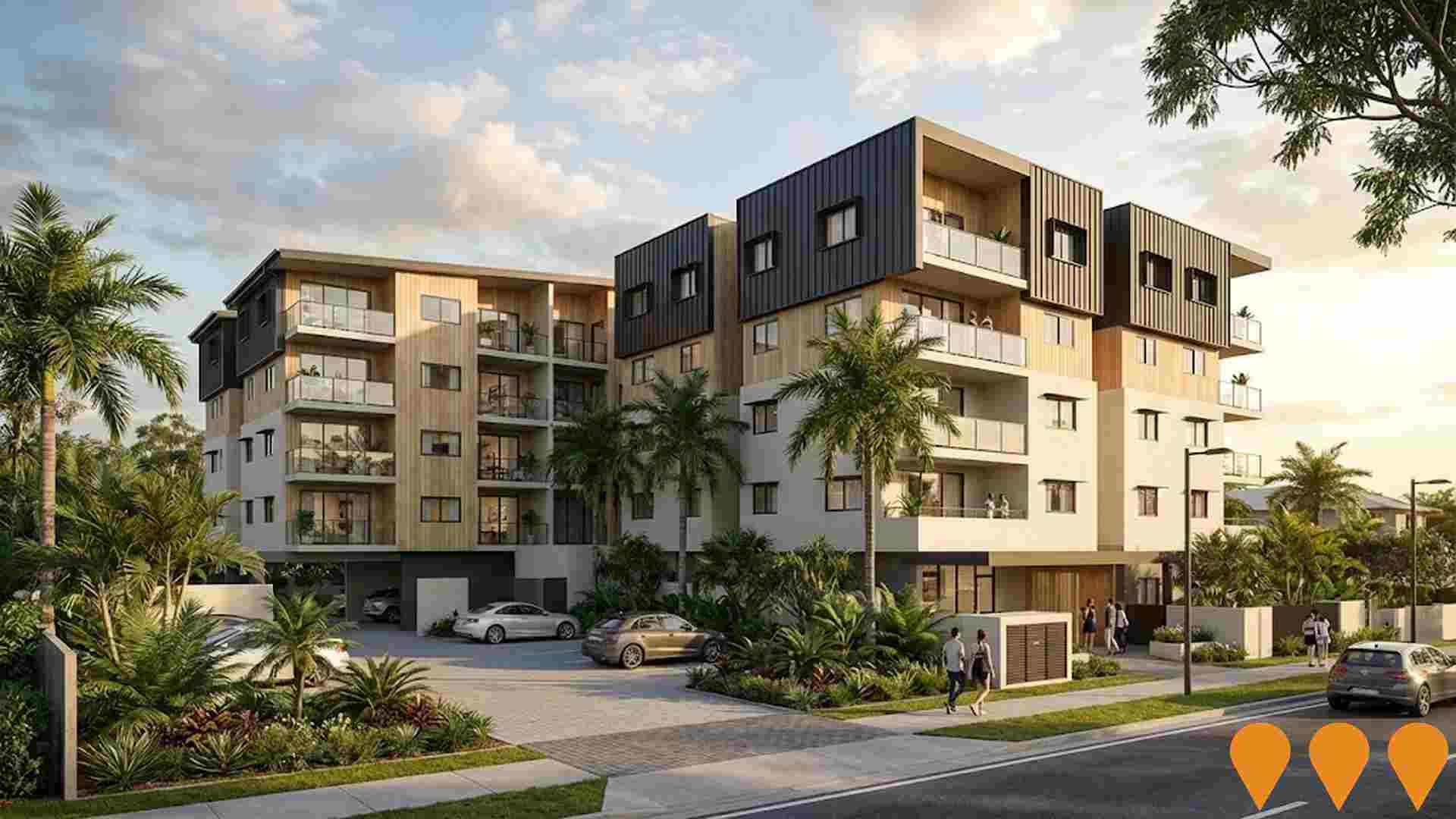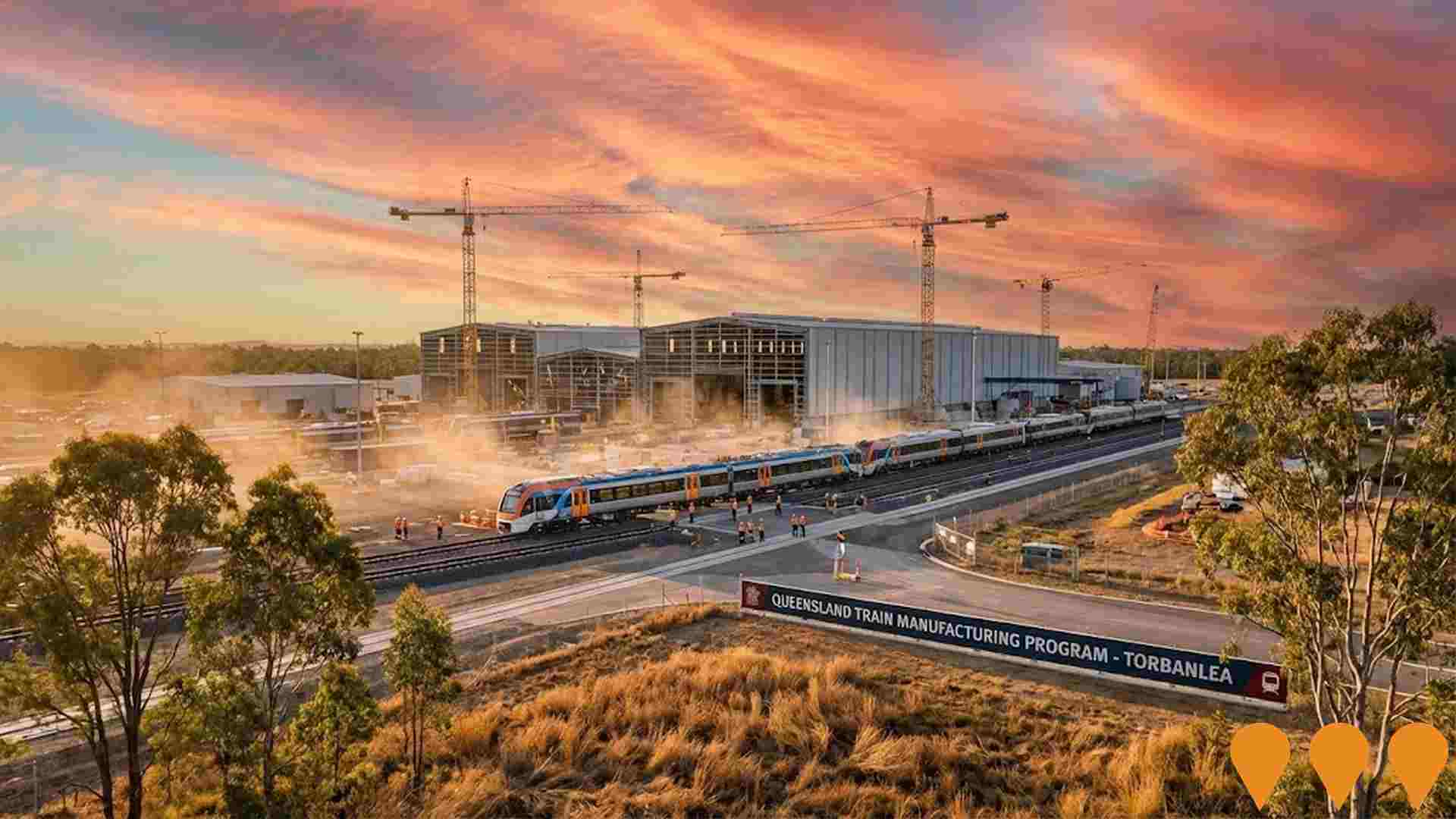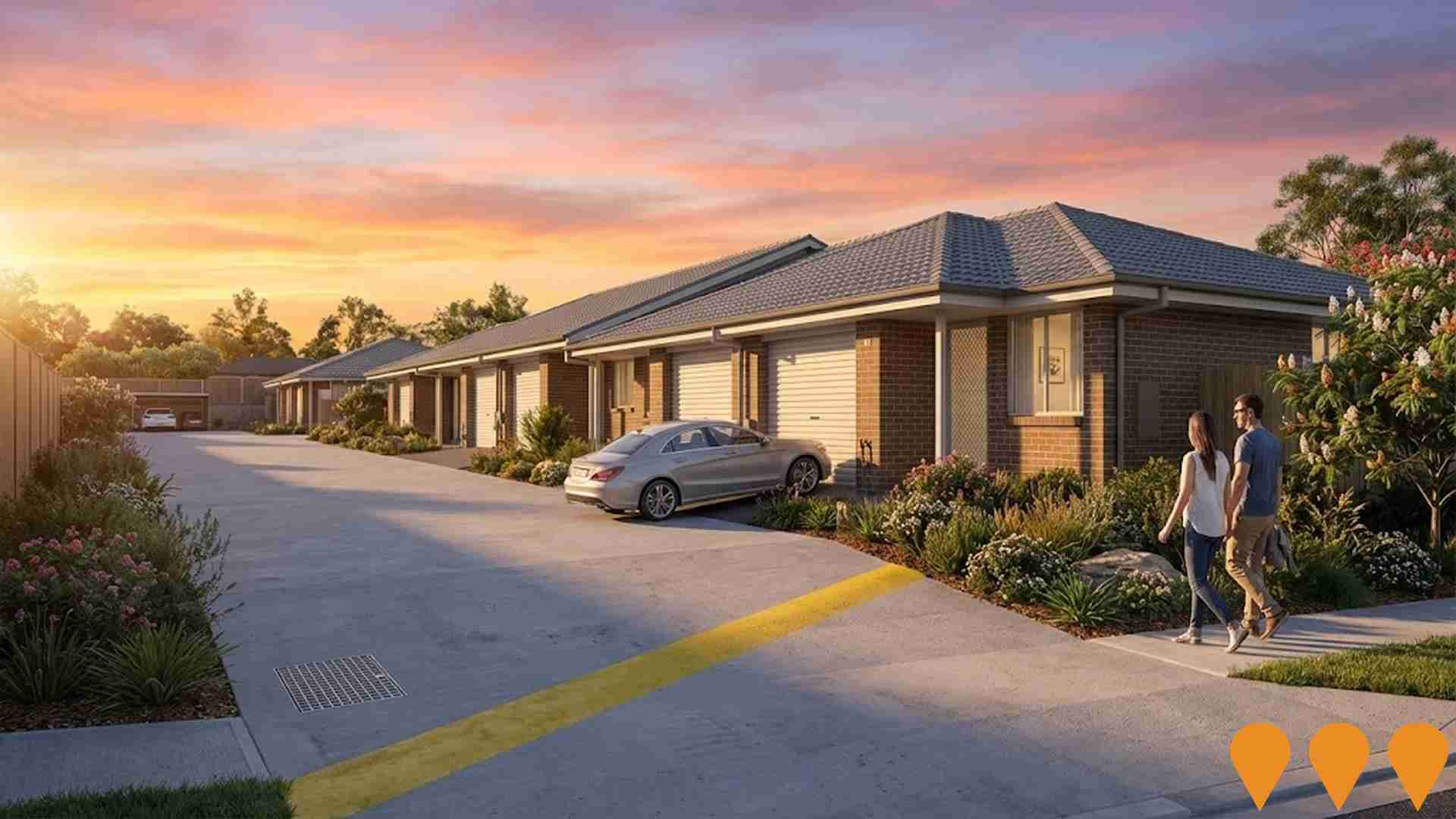Chart Color Schemes
This analysis uses ABS Statistical Areas Level 2 (SA2) boundaries, which can materially differ from Suburbs and Localities (SAL) even when sharing similar names.
SA2 boundaries are defined by the Australian Bureau of Statistics and are designed to represent communities for statistical reporting (e.g., census and ERP).
Suburbs and Localities (SAL) represent commonly-used suburb/locality names (postal-style areas) and may use different geographic boundaries. For comprehensive analysis, consider reviewing both boundary types if available.
est. as @ -- *
ABS ERP | -- people | --
2021 Census | -- people
Sales Activity
Curious about local property values? Filter the chart to assess the volume and appreciation (including resales) trends and regional comparisons, or scroll to the map below view this information at an individual property level.
Find a Recent Sale
Sales Detail
Population
Mount Warren Park has shown very soft population growth performance across periods assessed by AreaSearch
Mount Warren Park's population was around 5,988 as of November 2025. This reflected an increase of 252 people since the 2021 Census, which reported a population of 5,736. The change was inferred from ABS estimates and validated new addresses between June 2024 and the Census date. This resulted in a density ratio of 1,419 persons per square kilometer, above national averages according to AreaSearch's assessments. Overseas migration contributed approximately 53.5% of overall population gains during recent periods.
AreaSearch adopted ABS/Geoscience Australia projections for each SA2 area as released in 2024 with a base year of 2022. For areas not covered by this data and years post-2032, Queensland State Government's SA2 area projections released in 2023 based on 2021 data were adopted. Population projections indicate a decline of 227 persons by 2041 according to AreaSearch's methodology. However, specific age cohorts are expected to grow, notably the 75 to 84 age group projected to increase by 228 people over this period.
Frequently Asked Questions - Population
Development
AreaSearch assessment of residential development drivers sees a low level of activity in Mount Warren Park, placing the area among the bottom 25% of areas assessed nationally
Mount Warren Park has seen approximately 12 dwellings receiving development approval annually. Over the past five financial years, from FY-21 to FY-25, a total of 64 homes were approved, with an additional 2 approved so far in FY-26. On average, this results in about 1.6 new residents per year per dwelling constructed during these years. However, recent data shows an increase to 14.2 people per dwelling over the past two financial years, indicating growing popularity and potential undersupply.
New properties are constructed at an average expected cost of $228,000, which is below regional levels, suggesting more affordable housing options for buyers. This financial year has seen $10.7 million in commercial development approvals, demonstrating moderate levels of commercial development. Compared to Greater Brisbane, Mount Warren Park records significantly lower building activity, with 79.0% below the regional average per person. This constrained new construction often reinforces demand and pricing for existing properties. The recent building activity consists entirely of detached houses, preserving the area's suburban nature and attracting space-seeking buyers.
With around 1072 people per dwelling approval, Mount Warren Park reflects a highly mature market. Given expected population stability or decline, pressure on housing is likely to remain reduced, potentially presenting opportunities for buyers.
Frequently Asked Questions - Development
Infrastructure
Mount Warren Park has moderate levels of nearby infrastructure activity, ranking in the top 50% nationally
Area infrastructure changes significantly influence local performance. AreaSearch identified 12 impactful projects: Osprey Waters Retirement Village, Eagleby Shopping Plaza Redevelopment, Beenleigh Marketplace Enhancement, Kinross Road Residential Estate (AVJennings). Most relevant are listed below.
Professional plan users can use the search below to filter and access additional projects.
INFRASTRUCTURE SEARCH
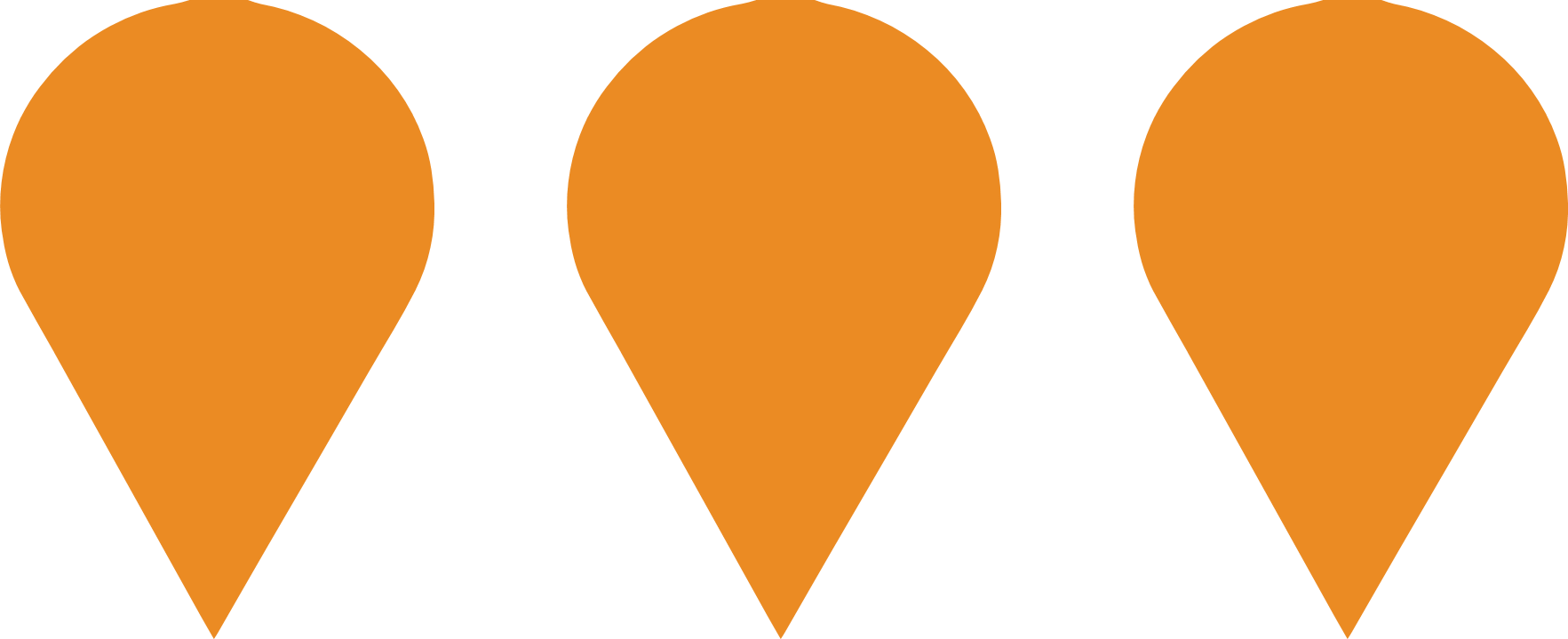 Denotes AI-based impression for illustrative purposes only, not to be taken as definitive under any circumstances. Please follow links and conduct other investigations from the project's source for actual imagery. Developers and project owners wishing us to use original imagery please Contact Us and we will do so.
Denotes AI-based impression for illustrative purposes only, not to be taken as definitive under any circumstances. Please follow links and conduct other investigations from the project's source for actual imagery. Developers and project owners wishing us to use original imagery please Contact Us and we will do so.
Frequently Asked Questions - Infrastructure
Beenleigh Town Square
Completed town centre urban renewal project in the heart of Beenleigh that has transformed a former six way roundabout into a flexible civic plaza and community gathering space. The square includes a civic platform, pavilion structure that could accommodate a future cafe, event lawns, dedicated market space, public amenities, power and water services, and improved pedestrian connections to the wider Beenleigh Town Centre. It now regularly hosts markets, festivals and concerts and acts as a catalyst for broader Beenleigh streetscape upgrades, with construction works completed in early 2022 under the leadership of Logan City Council. Sources: Logan City Council Beenleigh Town Square project information, venue hire pack and internal record and category mapping. :contentReference[oaicite:0]{index=0} :contentReference[oaicite:1]{index=1}:contentReference[oaicite:2]{index=2}
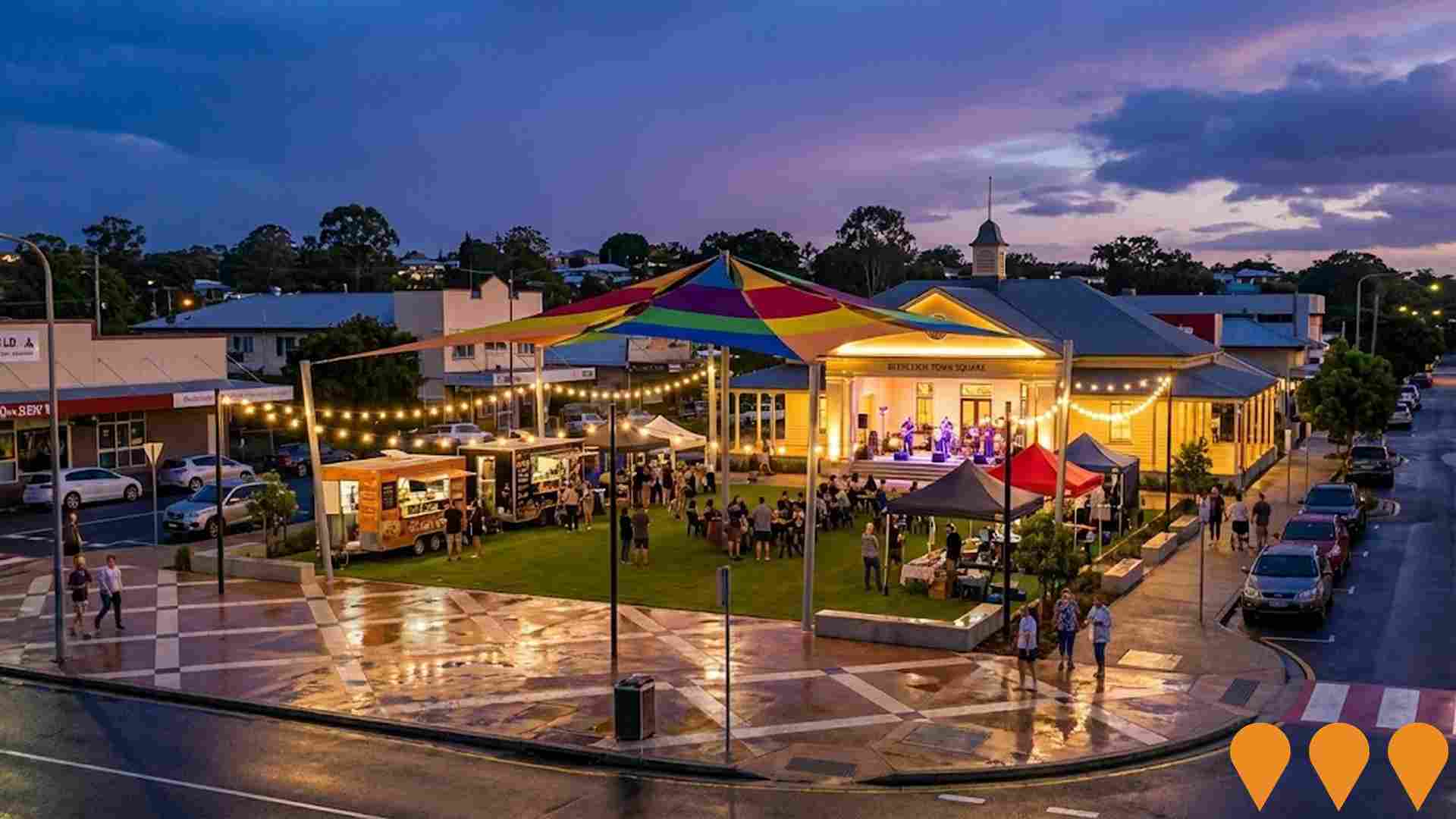
Distillery Road Market (DRM) Precinct Expansion
Completed expansion of the Distillery Road Market food, drink and entertainment precinct in Eagleby, anchored by the Zarraffas Coffee headquarters, The F.E.D. food and entertainment district, Perentie Brewing Co, covered market hall and outdoor entertainment spaces. The project delivers around 17,000 square metres of retail, hospitality and event space next to the Beenleigh Artisan Distillery, creating a regional destination between Brisbane and the Gold Coast with a regular program of markets, festivals and live music.

Sequana Logan Reserve
Master planned waterfront community by Villawood Properties featuring 340 metres of Logan River frontage, accommodating up to 950 residents across diverse homesite sizes with extensive parklands and recreational facilities.
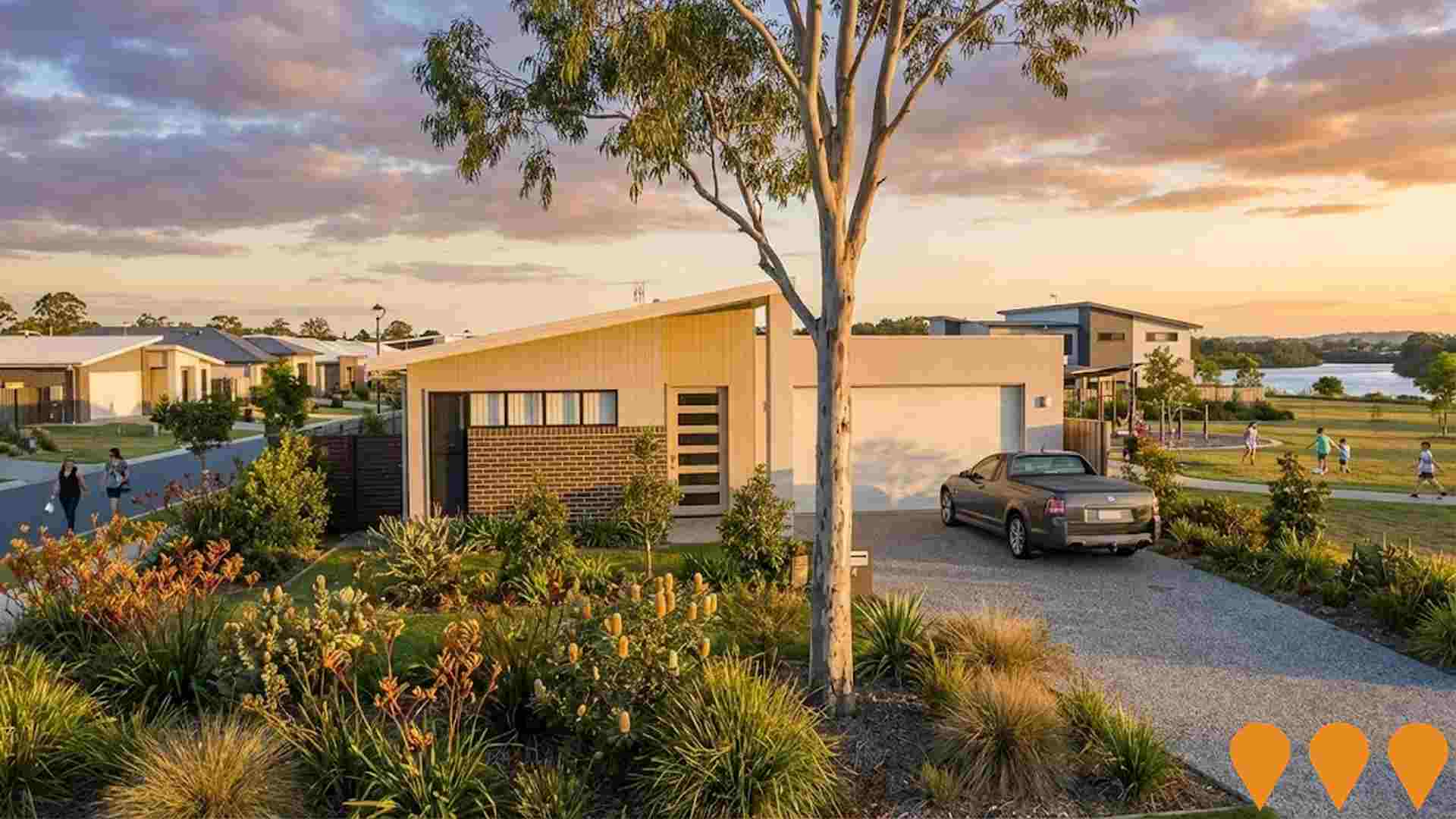
Mount Cotton Village Masterplan (Proposed Expansion)
Proposed expansion of the existing Mount Cotton local centre to include additional retail, community facilities, and medium-density residential uses under the Redland City Plan. The broader area is undergoing a planning process, including the Redlands Coast Regional Sport and Recreation Precinct Master Plan, which impacts the overall regional structure plan for Mount Cotton.

Beenleigh Marketplace Enhancement
Enhancement of established Beenleigh Marketplace with over 55 specialty stores. Improvements include expanded retail space, upgraded food court facilities, improved accessibility, and enhanced customer amenities to serve growing community needs.
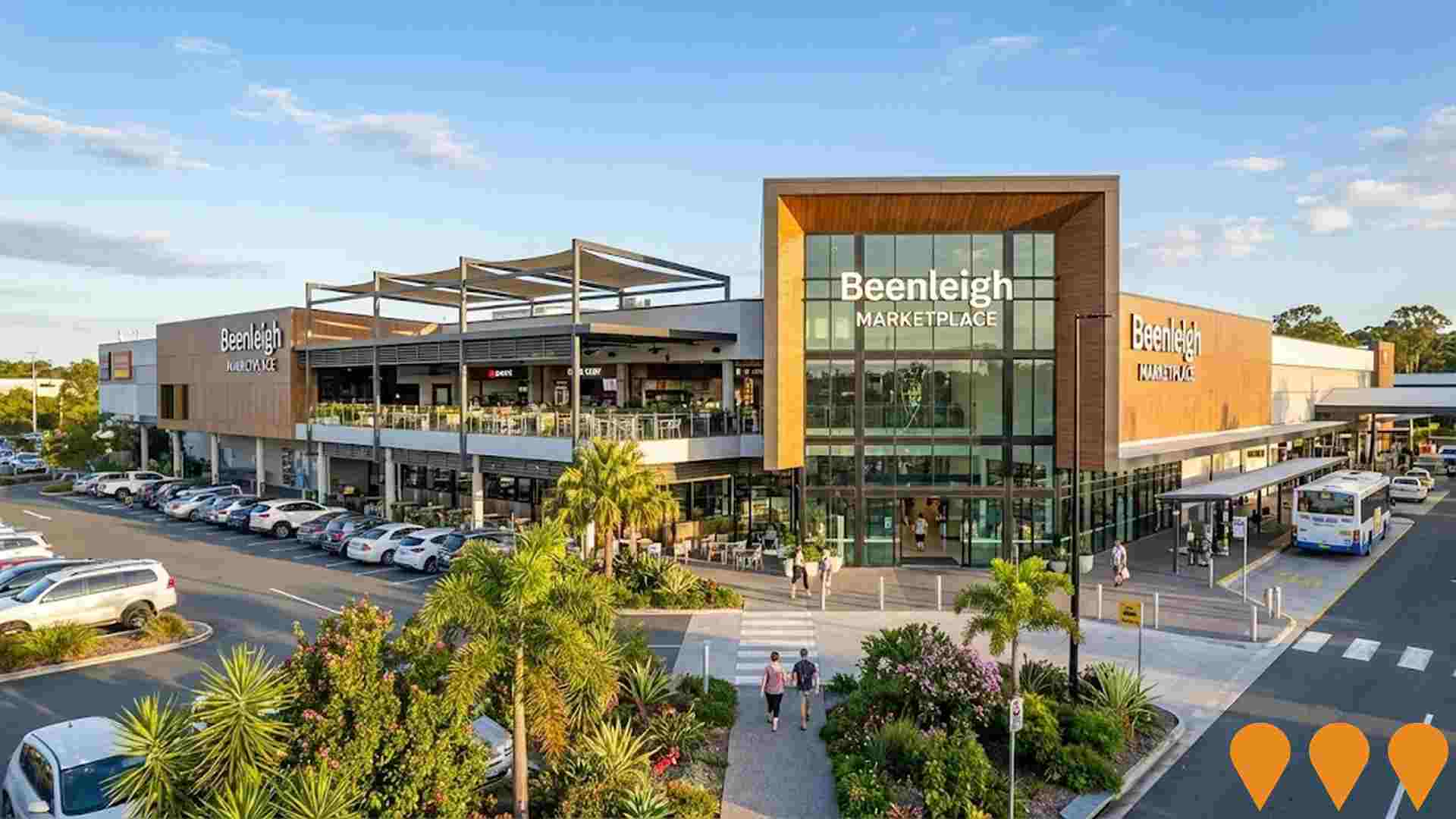
Acacia Waters Residential Estate
Large-scale residential estate development featuring family homes, parklands, and community facilities. Modern estate design with emphasis on sustainability and lifestyle amenities for growing families.
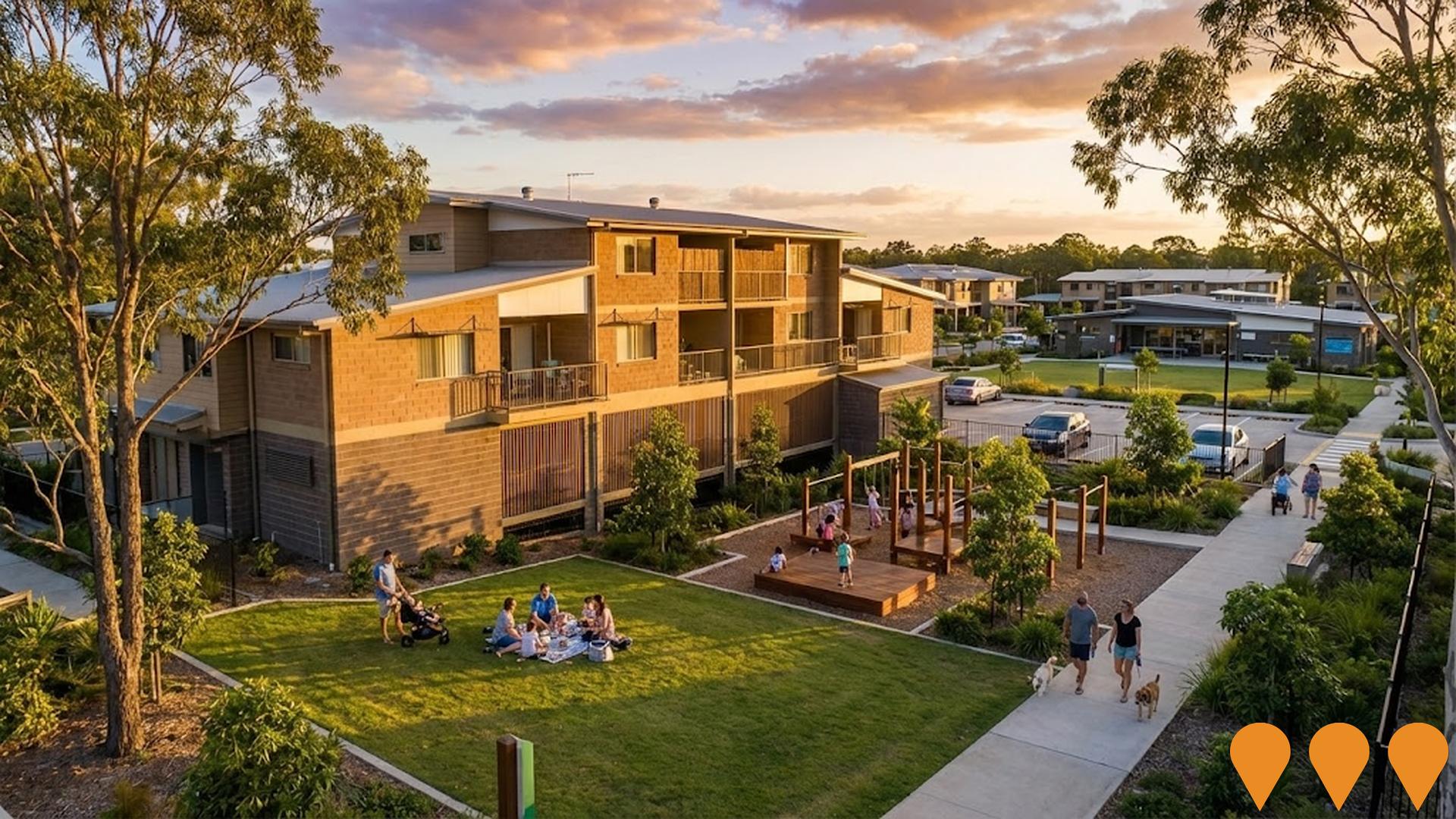
Eagleby Shopping Plaza Redevelopment
Proposed redevelopment of existing shopping plaza to create modern retail and community hub. Plans include expanded retail space, improved accessibility, and enhanced community facilities for local residents.
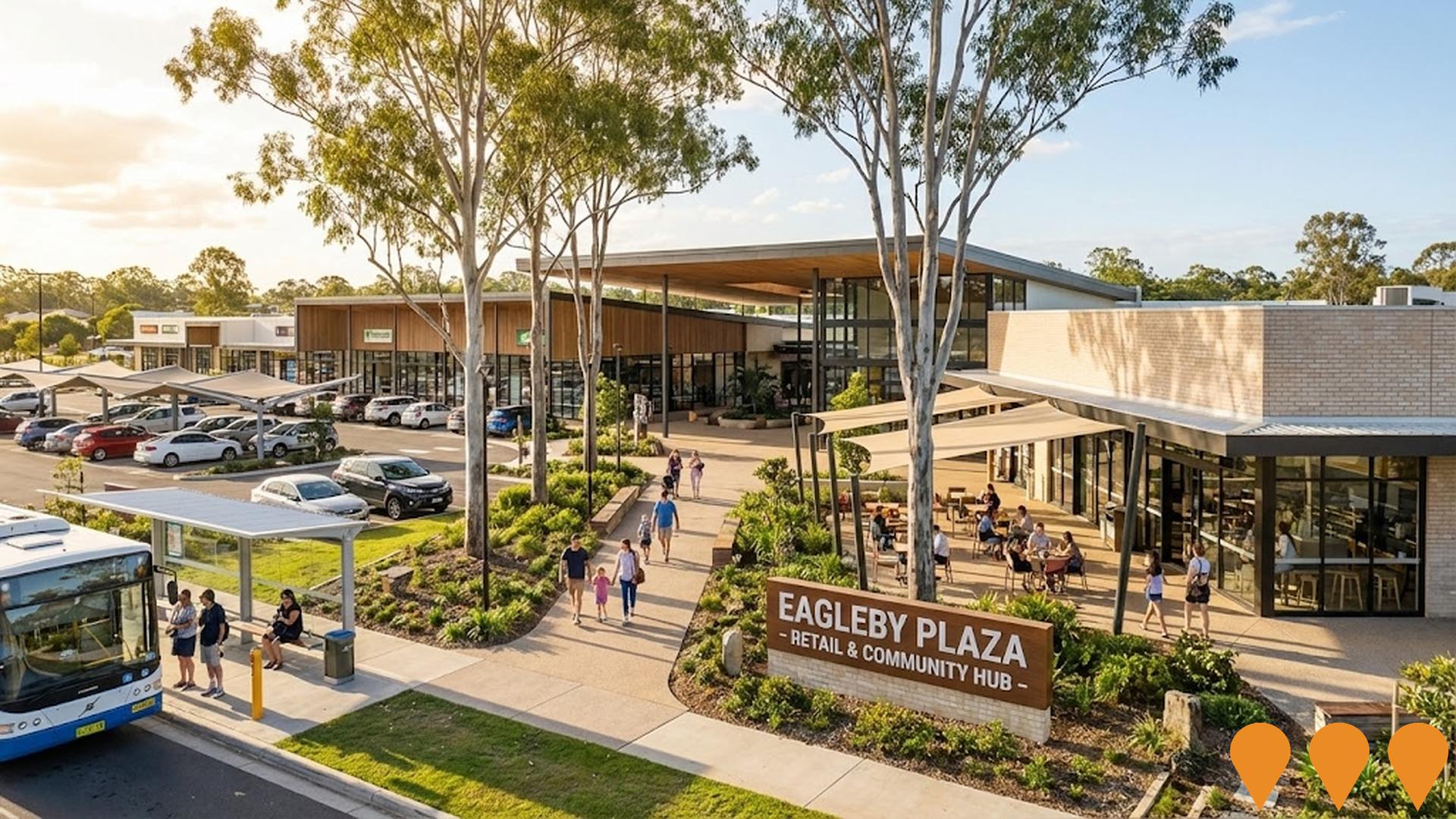
Beenleigh Village Mall Redevelopment
Redevelopment of existing village mall with focus on health services, medical facilities, and community amenities. Enhanced accessibility and modern retail spaces serving local Beenleigh community needs.

Employment
AreaSearch analysis places Mount Warren Park well above average for employment performance across multiple indicators
Mount Warren Park's workforce is balanced across white and blue-collar jobs. The construction sector stands out with a high representation rate.
As of September 2025, unemployment was at 2.8%, with an estimated employment growth of 3.4% over the past year. This figure is below Greater Brisbane's unemployment rate of 4%. Workforce participation in Mount Warren Park lags behind Greater Brisbane, at 58.2% compared to 64.5%. Leading industries include construction, healthcare & social assistance, and retail trade.
Construction employment is particularly high, at 1.6 times the regional level. However, professional & technical jobs are under-represented, with only 4.6% of Mount Warren Park's workforce compared to Greater Brisbane's 8.9%. Employment opportunities locally may be limited, as indicated by the Census working population vs resident population count. Between September 2024 and September 2025, employment levels increased by 3.4%, while labour force grew by 1.9%, leading to a decrease in unemployment rate of 1.4 percentage points. In comparison, Greater Brisbane saw employment grow by 3.8% during the same period. State-wide, Queensland's employment contracted slightly by 0.01% between November 2024 and November 2025, with an unemployment rate of 4.2%. National employment forecasts from May-25 suggest a growth of 6.6% over five years and 13.7% over ten years. Applying these projections to Mount Warren Park's employment mix indicates potential local employment increases of 6.2% over five years and 13.0% over ten years, although these are simple extrapolations for illustrative purposes only.
Frequently Asked Questions - Employment
Income
Income levels sit below national averages according to AreaSearch assessment
AreaSearch's data for financial year 2022 shows Mount Warren Park SA2 had incomes below national averages. The median income was $51,944 and the average was $58,073. In contrast, Greater Brisbane had a median income of $55,645 and an average of $70,520. By September 2025, estimates suggest median income could reach approximately $59,211 and average income $66,197, based on Wage Price Index growth since financial year 2022. Census data ranks Mount Warren Park incomes modestly, between the 35th and 35th percentiles for household, family, and personal incomes. Income distribution shows 33.9% of residents (2,029 individuals) earning within the $1,500 - 2,999 range, similar to the broader area at 33.3%. Housing affordability is severe, with only 83.8% of income remaining, ranking at the 36th percentile.
Frequently Asked Questions - Income
Housing
Mount Warren Park is characterized by a predominantly suburban housing profile, with above-average rates of outright home ownership
Mount Warren Park's dwelling structures, as per the latest Census, consisted of 79.2% houses and 20.7% other dwellings (semi-detached, apartments, 'other' dwellings). This compares to Brisbane metro's 78.9% houses and 21.1% other dwellings. Home ownership in Mount Warren Park stood at 32.6%, with the rest being mortgaged (44.6%) or rented (22.8%). The median monthly mortgage repayment was $1,600, surpassing Brisbane metro's average of $1,560. The median weekly rent figure was recorded as $340, aligning with Brisbane metro's figure. Nationally, Mount Warren Park's mortgage repayments were significantly lower than the Australian average of $1,863, and rents were less than the national figure of $375.
Frequently Asked Questions - Housing
Household Composition
Mount Warren Park has a typical household mix, with a lower-than-average median household size
Family households account for 71.4% of all households, including 28.9% couples with children, 28.5% couples without children, and 12.8% single parent families. Non-family households constitute the remaining 28.6%, with lone person households at 25.2% and group households comprising 3.4%. The median household size is 2.5 people, which is smaller than the Greater Brisbane average of 2.6.
Frequently Asked Questions - Households
Local Schools & Education
Educational outcomes in Mount Warren Park fall within the lower quartile nationally, indicating opportunities for improvement in qualification attainment
The area's university qualification rate is 14.0%, significantly lower than Greater Brisbane's average of 30.5%. Bachelor degrees are the most common at 10.0%, followed by postgraduate qualifications (2.2%) and graduate diplomas (1.8%). Vocational credentials are prevalent, with 43.0% of residents aged 15+ holding them, including advanced diplomas (10.9%) and certificates (32.1%). Educational participation is high at 26.7%, with 9.8% in primary education, 7.5% in secondary education, and 3.0% pursuing tertiary education.
Educational participation is notably high, with 26.7% of residents currently enrolled in formal education. This includes 9.8% in primary education, 7.5% in secondary education, and 3.0% pursuing tertiary education.
Frequently Asked Questions - Education
Schools Detail
Nearby Services & Amenities
Transport
Transport servicing is low compared to other areas nationally based on assessment of service frequency, route connectivity and accessibility
Mount Warren Park has 25 active public transport stops, all of which are bus stops. These stops are served by five different routes that together facilitate 363 weekly passenger trips. The accessibility of these services is rated as good, with residents typically living just 214 meters away from the nearest stop.
On average, there are 51 trips per day across all routes, which amounts to approximately 14 weekly trips per individual stop.
Frequently Asked Questions - Transport
Transport Stops Detail
Health
Health performance in Mount Warren Park is well below average with prevalence of common health conditions notable across both younger and older age cohorts
Mount Warren Park faces significant health challenges, as indicated by its health data. Both younger and older age groups have notable prevalence of common health conditions.
Private health cover is relatively low, at approximately 49% of the total population (around 2,928 people), compared to the national average of 55.3%. The most prevalent medical conditions are arthritis and mental health issues, affecting 10.5 and 9.2% of residents respectively. However, 62.2% of residents claim to have no medical ailments, slightly lower than the Greater Brisbane average of 63.1%. Mount Warren Park has a higher proportion of seniors aged 65 and over, at 22.2% (1,331 people), compared to Greater Brisbane's 16.1%. The health outcomes among seniors are broadly in line with those of the general population.
Frequently Asked Questions - Health
Cultural Diversity
In terms of cultural diversity, Mount Warren Park records figures broadly comparable to the national average, as found in AreaSearch's assessment of a number of language and cultural background related metrics
Mount Warren Park's population showed cultural diversity similar to the broader area, with 85.0% being citizens, 76.0% born in Australia, and 91.3% speaking English only at home. Christianity was the dominant religion, accounting for 49.4%, slightly higher than Greater Brisbane's 45.6%. The top three ancestry groups were English (31.1%), Australian (25.3%), and Irish (8.2%).
Notably, Maori (1.7%) and New Zealand (1.3%) groups were overrepresented compared to regional averages of 3.0% and 1.7%, respectively. German ancestry was also relatively high at 5.1%.
Frequently Asked Questions - Diversity
Age
Mount Warren Park's population is slightly older than the national pattern
Mount Warren Park has a median age of 41, which is higher than Greater Brisbane's figure of 36 and Australia's median age of 38. The 75-84 age group is notably over-represented in Mount Warren Park at 8.0%, compared to the Greater Brisbane average, while the 25-34 year-olds are under-represented at 11.1%. Between 2021 and present, the 75-84 age group has grown from 6.5% to 8.0% of the population, while the 25-34 cohort has declined from 12.1% to 11.1%. By 2041, demographic modeling suggests significant changes in Mount Warren Park's age profile. The 75-84 age group is projected to expand by 192 people (40%), growing from 478 to 671. Notably, the combined 65+ age groups will account for 100% of total population growth, reflecting the area's aging demographic profile. Meanwhile, the 45-54 and 55-64 cohorts are expected to experience population declines.
